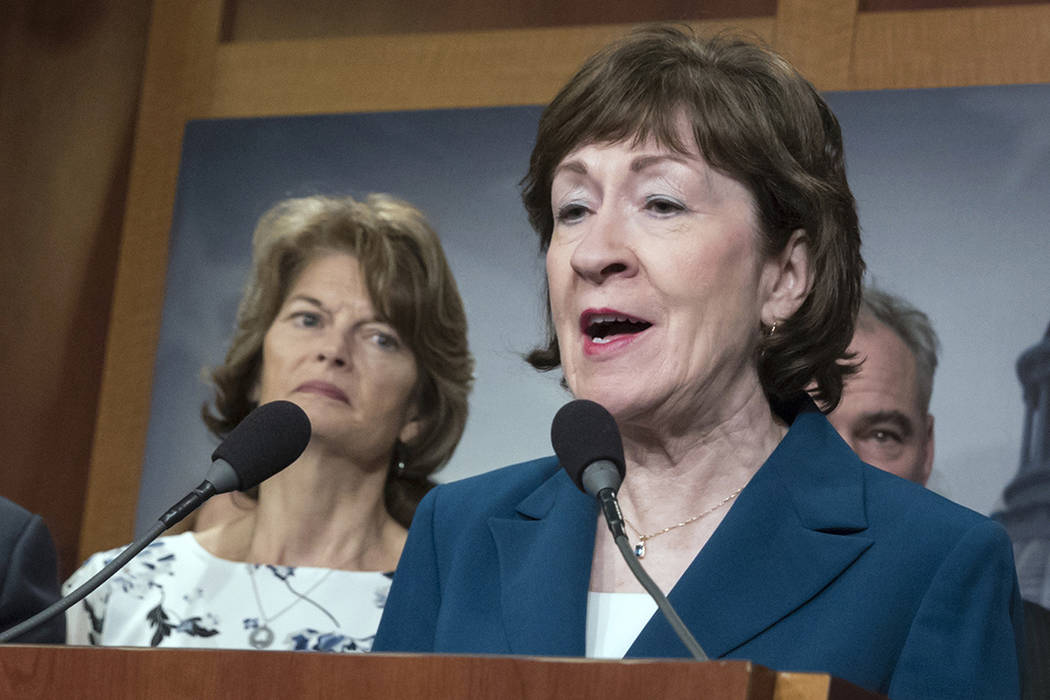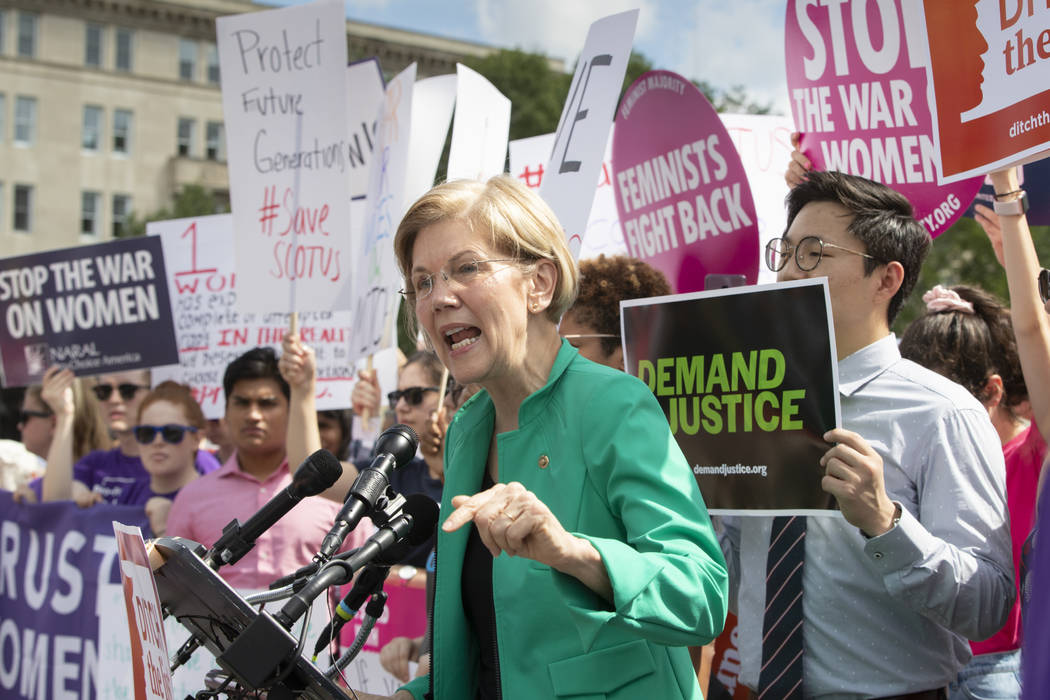Two GOP moderates may be key in looming battle over court vacancy


WASHINGTON — A looming Senate battle over a Supreme Court vacancy following the retirement of Justice Anthony Kennedy focused on abortion rights Thursday and placed two moderate Republican women senators in the spotlight.
President Donald Trump’s nominee for the vacancy could reshape the court for decades. Court opinions are in question with the exit of Kennedy, a swing vote who sided with the liberal wing on reproductive rights.
”Nothing less than a woman’s right to choose is on the line with this vacant Supreme Court seat,” said Sen. Catherine Cortez Masto, D-Nev.
Republicans and Democrats are closely watching two Republican moderates who have favored abortion rights decisions and policy.
Sen. Lisa Murkowski, R-Alaska, and Sen. Susan Collins, R-Maine, could become pivotal in the vote to confirm Trump’s nominee for the high court in the Senate where Republicans hold a slim 51-49 majority.
The two moderate Republicans may be the best chance Democrats have to halt a nomination following a change in procedural rules to eliminate the filibuster on Supreme Court nominees by Senate Majority Leader Mitch McConnell, R-Ky.
Until last year, Supreme Court nominees needed 60 votes to avoid a Senate filibuster and win confirmation. But last year, the GOP-controlled Senate changed the rules to allow a Supreme Court confirmation by majority vote.
McConnell said he plans to hold a vote on Trump’s nomination before the midterm elections in November, which could place political pressure on several of the 10 Democratic senators in states that Trump won in 2016.
Trump has vowed to select a nominee from a list of jurists opposed to abortion rights.
Three Democratic women senators, Elizabeth Warren of Massachusetts, Kirsten Gillibrand of New York and Kamala Harris of California, held a rally Thursday on the Supreme Court steps vowing to oppose a nominee from that shortlist.
Republicans were girding for a battle with Democrats in the Senate, even though Democrats have little leverage to stop the confirmation vote barring overwhelming public opposition to a nominee.
Sen. Orrin Hatch, R-Utah, warned from the Senate floor that liberal ideological groups will stop at nothing to halt a confirmation of a conservative nominee.
“They will do anything they can to undermine the nominee,” Hatch said. “They will bring all resources to bear.”
Sen. Dean Heller, R-Nev., said “Senate Democrats are already threatening to obstruct and delay the confirmation process for whomever President Trump nominates.”
But Heller’s general election opponent, Rep. Jacky Rosen, D-Nev., said a Trump nominee “could jeopardize Roe v. Wade,” the landmark 1973 Supreme Court decision that upheld a woman’s right to have an abortion.
Collins told reporters after Kennedy announced his retirement that she considered Roe v. Wade precedent, and that she would look at Supreme Court nominees who respect precedent.
Immediately after Kennedy announced his decision, Catherine Glenn Foster, president of Americans United for Life, urged Trump to nominate a constitutionalist “who will hew to the intended meaning of the nation’s charter and refrain from employing it as a means of social engineering.”
Marjorie Dannenfelser with Susan B. Anthony List said the vacancy created by Kennedy provides the anti-abortion movement with its best opportunity in “the fight to ensure every unborn child is welcomed and protected under the law.”
Abortion-right groups announced they were gearing up for a battle to defend reproductive rights and women’s health.
NARAL Pro-Choice America President Ilyse Hogue said well-funded pro-life groups have chipped away at abortion rights in lower courts and state legislatures with the stated goal of overturning Roe v. Wade.
Following Kennedy’s retirement and Trump’s pledge, Hogue said “a woman’s constitutional right to access legal abortion is in dire, immediate danger.”
Trump said the search for a nominee has begun and McConnell has announced that the Senate will hold a hearing and vote on confirmation this fall, before the court begins its session in October.
The nomination battle comes with midterm elections as a backdrop. The Supreme Court vacancy is expected to energize base voters of both major political parties.
If the seat is filled by Trump’s soon-to-be nominee, “conservative Republicans will control everything at the federal level — and the Supreme Court itself for a long time to come,” said Larry Sabato, director of the University of Virginia’s Center for Politics.
Contact Gary Martin at gmartin@reviewjournal.com or 202-662-7390. Follow @garymartindc on Twitter.














